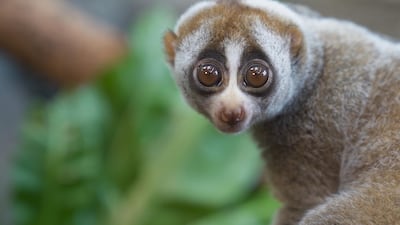
Lonely Loris was found abandoned in Dubai. Courtesy: The Green Planet
Lonely Loris was found abandoned in Dubai. Courtesy: The Green Planet
Abandoned 'Lonely Loris' finds the perfect breeding partner at The Green Planet Dubai
Another abandoned slow loris has been found in the UAE – and with it brings a brand-new conservation breeding programme to Dubai

